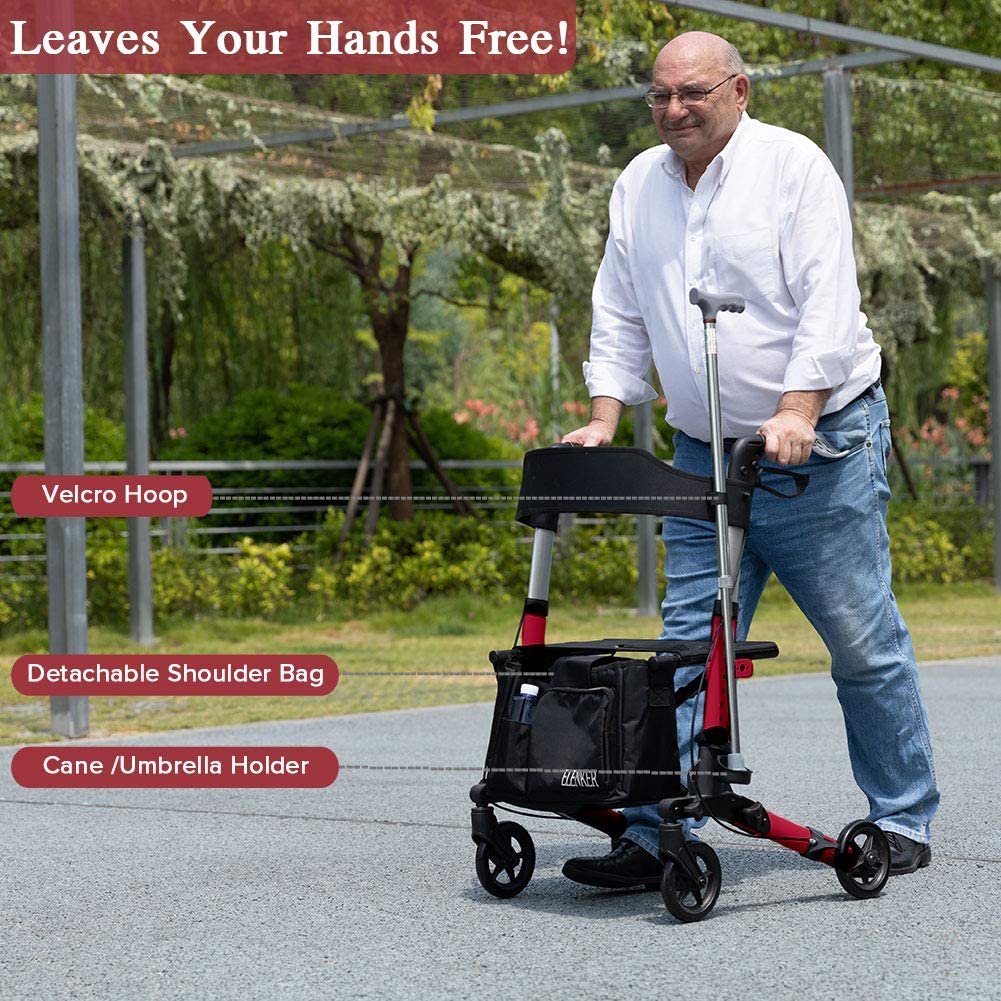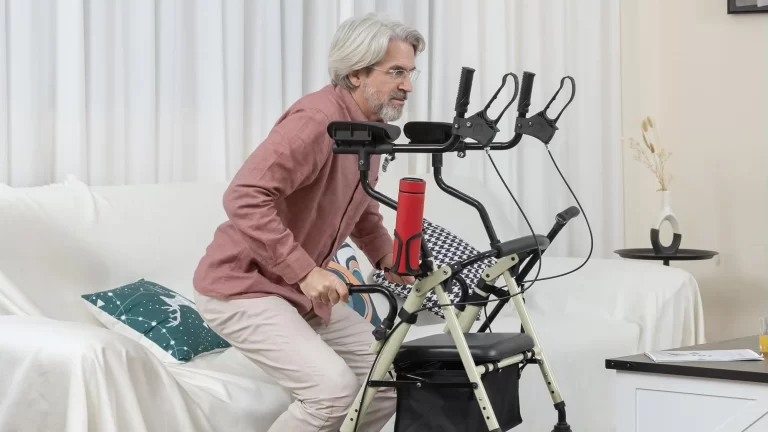Are There Lightweight Walkers for Disabled Seniors Who Tire Easily?
If you or a loved one is a senior who tires easily but still wants to stay mobile and independent, you might be wondering if there’s such a thing as a lightweight walker that’s actually easy to handle. The answer? Yep, there totally is.
Let’s talk about walkers for disabled seniors, especially those designed for people who just need a little extra support without the heavy lifting or bulky frames. Because let’s be real—no one wants to feel like they’re pushing around a tank just to get from the living room to the kitchen.
Why Lightweight Walkers Matter
As we age, our bodies naturally slow down. For many seniors, especially those living with disabilities or chronic conditions, energy becomes a precious resource. Even simple tasks can feel exhausting. That’s where lightweight walkers come into play.
They’re easier to push, lift, fold, and store. Plus, they reduce the strain on your arms and shoulders—huge win. Whether you’re dealing with arthritis, fatigue, or recovering from a surgery, having something lightweight and supportive can be a big help.
Who Needs a Lightweight Walker?
Not every walker is built the same. Some are super heavy-duty, meant for rougher terrain or heavier use, while others are more streamlined. Lightweight walkers for disabled seniors are great for people who:
- Get tired easily
- Have joint pain or arthritis
- Need something portable for errands or travel
- Want to stay independent without too much hassle
- Are managing conditions like Parkinson’s, MS, or post-surgery recovery
What to Look for in a Lightweight Walker
When choosing a walker, you want to find the right balance between support and simplicity. Here are a few features to keep in mind:
- Weight: Ideally, the walker should weigh under 15 pounds. Some ultra-light models weigh even less.
- Foldability: You want something that folds up easily for storage or tossing in the trunk of a car.
- Seat: A rollator walker with seat is a great option if you need to take frequent breaks.
- Brakes: Make sure it has reliable hand brakes, especially if you’re using it outdoors or on slopes.
- Adjustability: The handles should be adjustable to match your height—no hunching or straining.
- Storage Basket or Bag: Because it’s way easier to carry your stuff when the walker does it for you.
Types of Lightweight Walkers
Let’s break down a few common types that are perfect for tired seniors looking for something easy to use.
1. Two-Wheel Walkers
These are super simple—basically, a frame with two front wheels and rubber tips on the back. They offer good support and are lighter than most rollators. But they don’t have seats, so they’re best for short distances.
2. Three-Wheel Walkers
If you’re looking for something even more compact and nimble, a three-wheel walker could work. They don’t usually come with a seat, but they are very easy to maneuver and great for indoor use.
3. Four-Wheel Rollator Walkers with Seat
This one’s a fan favorite. A rollator walker with seat combines mobility with convenience. These usually include four wheels, a padded seat, hand brakes, and often a storage compartment. They’re a bit heavier than two- or three-wheel options, but many models are still super light and fold up nicely.
If you’re the kind of person who wants to take a walk around the block or shop at the grocery store but might need a break halfway through—this is your best friend.
Benefits of Using Lightweight Walkers
Honestly, switching to a lightweight walker can be a total relief for many seniors. Here’s why:
- Less Fatigue: You won’t burn energy just trying to push the thing around.
- Better Posture: Proper height adjustment can ease back and shoulder pain.
- More Independence: You don’t need to rely on someone to help you walk from room to room.
- Safer Mobility: Walkers reduce the risk of falls and offer extra stability.
- Confidence Boost: When you can move around comfortably, it lifts your mood and gives you more freedom.
So yes—there are definitely lightweight walkers for disabled seniors who tire easily, and they can make a world of difference in day-to-day life. Whether you’re looking for something basic or a full-featured rollator walker with seat, the options out there today are practical, comfortable, and tailored to your needs.
It’s not about keeping up with anyone—it’s about moving at your own pace, safely and comfortably.
And hey, if you ever feel overwhelmed by all the options, don’t stress. Talk to a physical therapist or medical equipment specialist—they’ll point you in the right direction based on your mobility level and daily habits.

